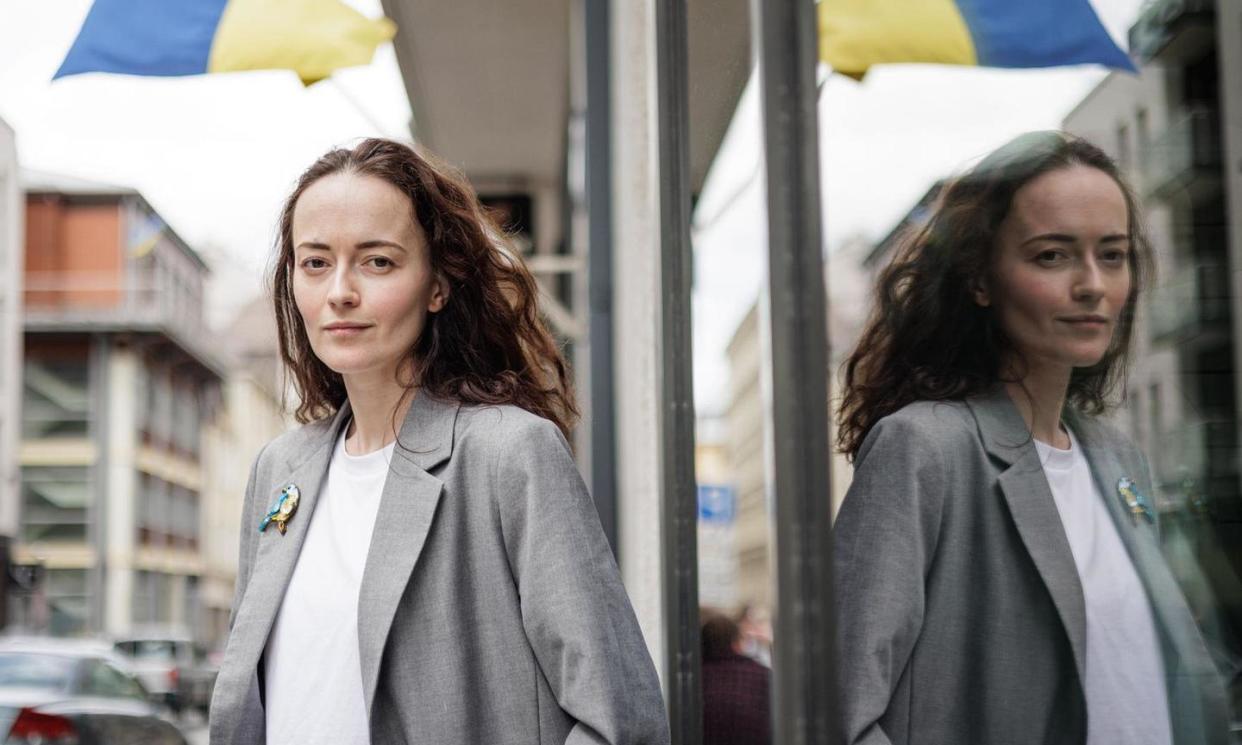The fight for full press freedom in Ukraine: ‘We can write what we want, but bad actors try to intimidate us’

For Olga Rudenko, the editor of the Kyiv Independent, journalism is not just a profession but a moral imperative. “Our soldiers in the frontline are fighting for Ukraine to define its own future,” she says. “They are fighting for Ukraine not to be Russia; Russia is associated with no freedom of speech, no freedom of media, no freedom whatever.
“If they are dying, we should be using those rights.”
This is more than a simple call for Ukrainian reporters to write as they see fit. Rudenko is speaking out against a clumsy campaign of intimidation of journalists that began last autumn, in which staff at the English-language title have been subject, she says, to “undue interest” from the country’s SBU intelligence service.
The Kyiv Independent is the country’s best known English-language title in a free, vigorous and largely online news market. But, Rudenko adds, “since October-November, a lot of newsrooms started feeling pressure at a time when some people began to think there might be elections”. (Elections in Ukraine are suspended under martial law and, despite that autumn speculation, there are no plans to hold them.)
Two high-profile cases of harassment have involved other titles. In January, journalists at the investigative site Bihus.info found 30 SBU officers had placed hidden cameras in hotel rooms to covertly record journalists at a New Year party. Some reporters had discussed buying drugs and were taking cannabis and MDMA; the footage was released in a smear video, prompting an outcry that eventually led to the sacking of an SBU chief.
Earlier this month, Yevhen Shulhat, an investigative journalist from Slidstvo.info, who was investigating the purchase of a luxury flat by the wife of an SBU cybersecurity chief, was served with enlistment papers while he was shopping at a supermarket one evening.
Journalists on the website subsequently obtained CCTV footage of the incident. This showed a man in plain clothes, tentatively identified as working for the SBU, appearing to direct two soldiers who approached Shulhat. “This is using mobilisation as a death sentence for journalists,” Rudenko says. “As reporters, on the one hand we can write whatever we want, but, as we do it, bad actors in government have more tools than ever to try and intimidate us.”
The editor is more coy about incidents of harassment involving Kyiv Independent journalists, saying “we always give the authorities a chance to fix it, and they have so far”. But Rudenko argues that while what has happened since the autumn “is not great”, in the longer term she remains optimistic about press freedom because “the Ukrainian journalist community is a very strong community, and that they are fighting back is a reflection of Ukrainian society”.
The Kyiv Independent was founded in November 2021 as an offshoot of the long-established Kyiv Post, after the latter’s owner, Adnan Kivan, decided suddenly to suspend publishing and dismiss all its journalists. Rudenko had been the Post’s deputy editor but was in the process of leaving, taking a sabbatical in Chicago, only to learn a core group of reporters wanted to set up something new. “If you want to start something, I am with you,” she told them.
It was a little over three months before Russia’s full-scale invasion of Ukraine, but at the time geopolitics was far from their mind. Instead, they were involved in a frantic effort to raise money to pay salaries and establish the Kyiv Independent quickly, because it had rapidly become clear that the Post’s owner had changed his mind and was going to relaunch. Emergency funding of $100,000 was obtained from the European Foundation for Democracy, and the title launched a membership programme.
Then the war started. “We became successful for a very sad reason. It was not really the case of ‘right place, right time’: we did a lot of homework for it to happen this way,” Rudenko says. “We had the fundraising, the membership model; we built a solid foundation in those three months.”
Today, there are 11,000 members paying an average of $9 (£7) a month, generating most of the organisation’s $1.9m annual revenues, and benefits include access to a chat on a Discord server, the chance to ask the title’s journalists questions about the war, and language lessons in Ukrainian. There are 60 employees, about 40 of whom are journalists, based in an office off one of Kyiv’s most picturesque streets.
Rudenko argues that while the title is careful about revealing the location of military deployments, it is not possible to refrain from writing stories critical of the armed forces. “You can’t write about Ukraine and not write about corruption,” she says. One of the Kyiv Independent’s highest-profile pieces was a two-part investigation into abuse of power, corruption and bullying in Ukraine’s International Legion of foreign volunteers.
Corruption and abuse of power are hardly the only themes when war in Europe is unfolding. One reporter, Francis Farrell, has been shortlisted in the distinguished reporting category of the European Press Prize for his account of a night under bombardment in Bakhmut in January last year, before it fell to the Russians. A newly established war crimes unit has made four films, the most recent of which examines whether Russia is displaying genocidal intent in its invasion of Ukraine.
Being owned by its staff and financially independent means that “all the decision are made inside the newsroom”, says Rudenko. “There is a team page on our website, we use our real names. You might think these people are wrong and biased – but there is transparency.”


